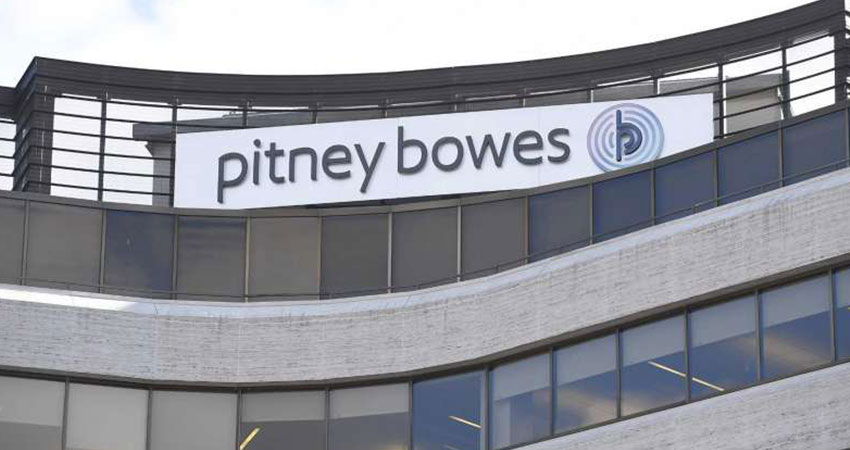Pitney Bowes reported a 10% drop in Q1 revenue and a net loss of $8 million vs. income of $21 million in 2022, and announced unspecified staff reductions in its global ecommerce and domestic parcel units, as it looks at a contentious shareholder meeting Tuesday with major investors eager for wholesale changes.
“The most recent quarterly results highlight just how badly Pitney Bowes needs the fresh perspective of Hestia Capital to turn the company around,” said Justin Dopierala, principal of Domo Capital Management and a backer of the alternate slate of directors. Hestia has put forward a slate of five directors for the nine-member board, including its principal, Kurt Wolf.
Three independent proxy advisory firms — Egan-Jones Proxy Services, Institutional Shareholder Services Inc. and Glass, Lewis & Co. — are calling for “meaningful boardroom change” at Pitney Bowes, according to the opposition investors.
The company’s stock was at $2.94 as of Thursday’s close, down 27% year to date. The group headed by Hestia claims its plan can boost it to the $15 level in the coming years. Hestia holds a 9.1% stake in Pitney Bowes, up from 6.9% in November when it first announced its position in a 13D filing.
The past few months have been a continual back-and-forth between Pitney Bowes management and Hestia, each laying out their case for why shareholders should support their vision of what’s best for the business.
Hestia has put forward turnaround specialist Lance Rosenzweig as a candidate for interim CEO. Most recently he was head of Support.com, where, the opposition group claims, he drove 630% growth in shareholder value in two years.
“While Pitney Bowes appears to be in critical condition today, I am excited by the prospect of becoming interim CEO and drawing on my turnaround experience to stabilize the organization and set it on a path to long-term value creation,” Rosenzweig said in an April 4 letter to shareholders.
In an April 18 letter, Pitney Bowes management used words like “vague,” “misleading” and “poorly thought out” to describe Hestia’s turnaround plan. “Hestia’s so-called ‘pillars’ are nothing of the kind and cannot justify the kind of radical change Hestia has advocated,” the company said in urging shareholders to review its investor presentation.
The global ecommerce unit at Pitney Bowes reported Q1 revenue of $348 million, down 17% from $419 million a year ago. Presort, its traditional postal consolidation business, was relatively flat at $159 million. SendTech, including mailing and shipping technology, was down 6% to $327 million. Out of total Q1 expenses, $6.4 million went toward proxy solicitation fees, and there was $3.6 million in restructuring charges.
“We are resetting our cost structure in global ecommerce to reflect the realities of the cross-border market, where the headwinds are not likely to calm anytime soon,” CEO Marc Lautenbach told analysts on an earnings call Thursday. “In addition, the overall performance of our domestic parcel network has revealed the opportunity to do more with less. Said another way, we believe the network we have built can deliver the volumes contemplated in our long-term strategic plan with fewer sites and at reduced operating expense levels.”
The company said the restructuring plan is projected to save $75 million annually by the end of fiscal 2024. On the plus side, Pitney Bowes said the global ecommerce unit processed 50 million domestic parcels in Q1, up 22% percent from 41 million in 2022, and its on-time performance was in the mid-90% range.
Asked about reaching EBITDA profitability in global ecommerce, which management had mentioned in the past, EVP and CFO Ana Maria Chadwick said the environment is “much more challenging … than we were anticipating.”
“The key is that the team continues to strive for that,” Chadwick said. “We talked a lot about the dynamics here. It is more challenging, but the team is super focused. And the cost actions that we’re implementing will help attain as best an opportunity to achieve that.”
Lautenbach responded to a question about selling the cross-border ecommerce unit while maintaining the domestic parcel business, which some activists have called for, saying they were “separable.”
“I’m not going to comment on any particular portfolio actions,” he said. “I will say, as I’ve always said, everything is on the table, and that particular dynamic is clearly in our sight. So, if we can find something that makes sense for our shareholders, makes sense for our bondholders, makes sense for our customers, we would take that path.”
Dopierala said Lautenbach’s tenure at the company “has been a complete failure” and nothing short of his immediate removal can turn things around.
“If Hestia wins at least four board seats then Marc should either accept the clear intention of shareholders and immediately submit his resignation, or the new board of directors should immediately terminate him,” he said.

